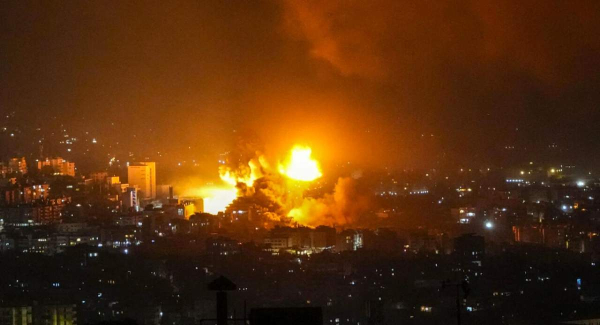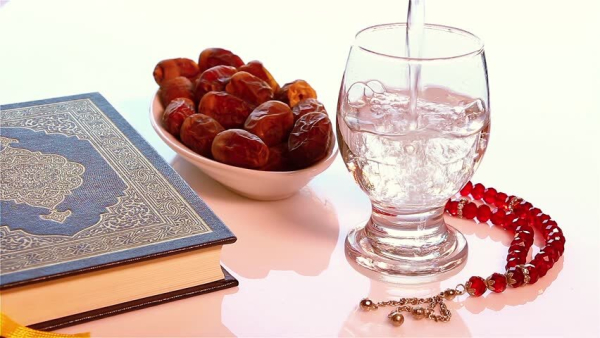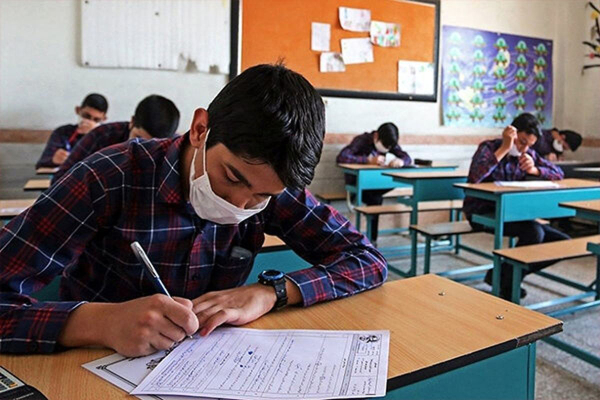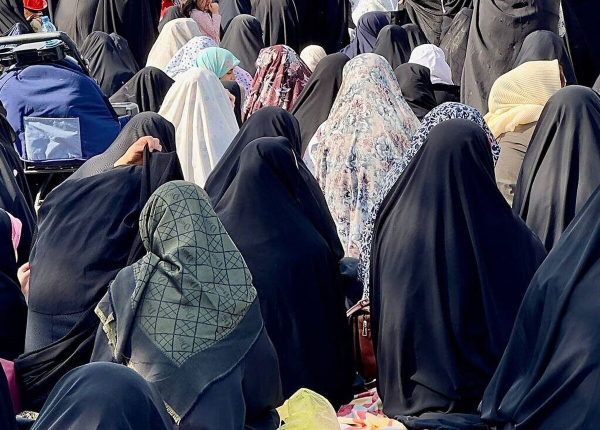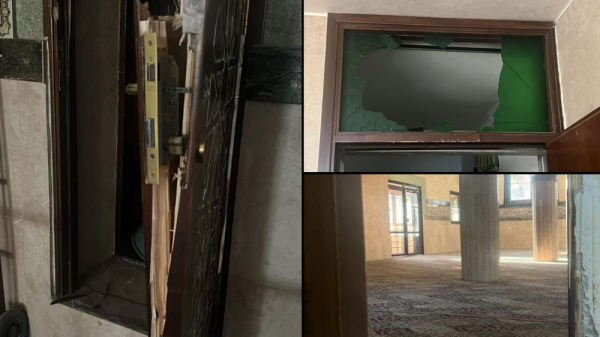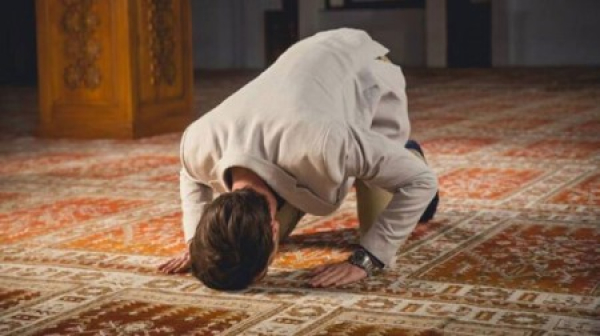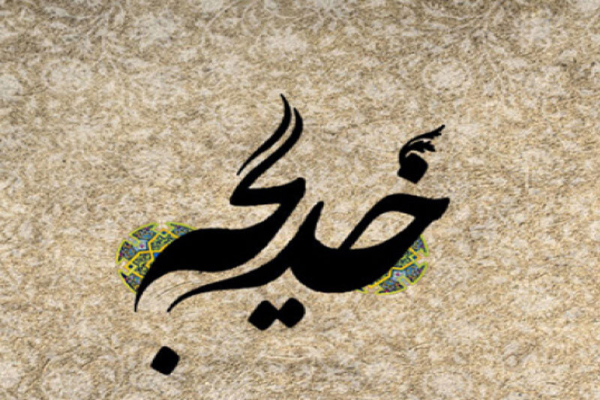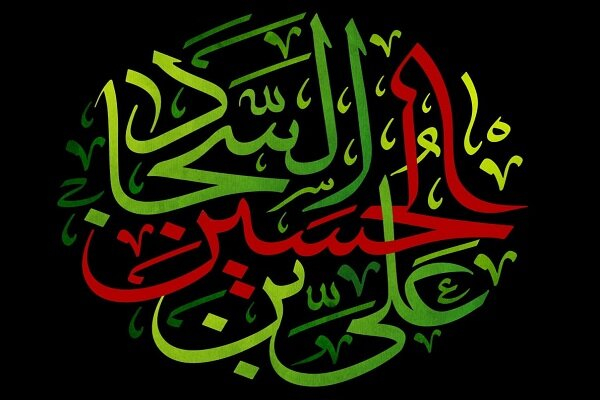zarezadeh
Israel strikes targets in southern Syria after pressing for ‘demilitarization’
Israeli warplanes have carried out multiple airstrikes on military targets across southern Syria, attacking areas outside the capital Damascus and the southern province of Dera’a after a call by Israeli prime minister Benjamin Netanyahu for “demilitarization” of the region.
Israeli minister for military affairs Israel Katz confirmed the assaults, which hit military installations in the town of Kiswah, south of Damascus, as well as some sites in Dera’a.
Israeli paper Yedioth Ahronoth also alleged that Tel Aviv had begun implementing a scheme aimed at “entering southern Syria and controlling” it.
The developments came after Netanyahu pressed for “complete demilitarization” of southern Syria, including the provinces of Quneitra, Dara’a, and Sweida.
In 2011, the Israeli regime began backing up Takfiri terrorist groups and intensifying its deadly aggression against Syria as a means of trying to oust the Arab country’s democratically-elected government of Bashar al-Assad, which had consistently proven an opponent of Tel Aviv’s regional aggression.
Late last year, the regime ramped up its attacks across the Syrian territory even further, claiming that it sought to prevent violence inside Syria from spilling over into the occupied territories.
Israeli forces even entered the United Nations-demarcated buffer zone between Syria and the occupied Palestinian territories in the country’s Tel Aviv-occupied Golan Heights in a move that was condemned by the UN.
Meanwhile, foreign-backed militants overthrew the Syrian government amid the Israeli escalation that was targeting the country’s defensive and civilian infrastructures, setting up their own administration.
In the aftermath of the Tuesday airstrikes, however, Syria’s new authorities condemned the Israeli regime's aggression, demanding immediate withdrawal of Israeli forces from the country’s territory, and warning of the consequences of the regime’s continued military presence there.
Protests over Netanyahu’s ‘demilitarization’ push
Also on Tuesday, widespread protests erupted across southern Syria in response to Netanyahu's recent remarks.
Demonstrators in cities such as Dara’a, Damascus, Sweida, and Quneitra took to the streets in defiance of Netanyahu's call, with those showing up in the capital gathering outside the United Nations office to denounce the Israeli prime minister's statements and urge an international response to Israeli violations of Syria’s sovereignty.
Many protesters emphasized Syria's right to territorial integrity and sovereignty, rejecting any foreign interference, whether by the regime or others.
Press TV’s website
Shaking hands between men and women that are not Mahram
All imitation authorities consider any physical contact between girl and boy, even shaking hands with people from religions other than Islam, and those who live abroad are prohibited from doing so. And it is only permissible to shake hands with gloves they do not press each other and do not intend to enjoy.
Islam's opinion on the hand with the unholy
While the opposite sex may not stimulate lust for many people, there are other people who are also stimulated with this brief amount of communication, given that among the first group may also be people who may be with Cordly to show themselves provide the basis for illegitimate communication.
Accordingly, it deserves to be lost with the unholy that is not essential in social life. God Almighty has enacted most of the religious laws and considers the public interest in the general community, although the wisdom of the judgment may not include some people. For example, although shaking hands with women may not create any erotic feeling in some older or middle -aged people, the sacred law has ruled in many people because of the same feeling.
But about the physical contact of the man and the woman and the shakes and clashes with each other, the imitation authorities have generally said: Handy is not permissible unless something is hijab, or secondary titles such as The necessity is true.
To brush during fasting?
Some people do not have the opportunity to brush before dawn, so they have to brush your teeth after adhan, here may be the question for some to brush at this time? Will fasting be invalidated or not?
Ayatollah Khamenei
Question: Is it okay to brush with toothpaste?
Answer: It's okay; But the mouth water that is impregnated with toothpaste and water should be prevented.
Ayatollah Behjat
Question: Is it okay to brush with a fasting toothpaste?
Answer: If nothing comes into the throat, it's okay.
Why shouldn't the traveler fast?
According to verse 185 of Surah Baqarah, why can't the traveler fast?
Regarding the necessity of fasting on the journey, the Holy Qur'an in Surat al -Baqarah says: "You want it easy and it doesn't want it to be difficult."
Imam Sadiq (peace be upon him) quotes the Prophet (peace be upon him): "Iftar is a broken journey and prayer of divine gifts. Whoever does not pay attention to it has rejected the divine gift. "
According to this statement, perhaps one of the philosophies and wisdom of fasting in the journey is the same issue of discount on the task, and in other words, it is the expression of the servants.
What is the decree of fasting during Ramadan because of exams?
Ayatollah Makarem Shirazi:
Iftar's permission is not fasting and if it can, it must change its study hours and postpone the time interval of Iftar to magic or when it is more capable of studying. Otherwise, the only AFTARI license is to get out of the city in some days (eg, 2-5 days), and there to return and return. And until Ramadan next year it did it.
What is the ruling of foot covering when praying?
Ladies in front of the unholy should cover the legs; There are only two positions for women to cover in the presence of the unmarried: "Face Tour" and "Hands to the wrist", if they do not have the makeup and ornament that is noticeable and impressive. "
The woman must even cover her head and hair at the time of prayer. But covering the face as washed in the ablution, and the hands to the wrist, and the legs to the ankle. But in order to make sure he has covered the obligatory amount, he must cover some of the face and a little lower than the wrist.
One of these differences is the same thing that the question above seeks to clarify; That is, the subject of the lack of necessity to cover the feet for the woman in prayer and the necessity of preserving it from an unmarried perspective.
It should also be noted that the meaning of the foot is all the fingers, the foam, the face and the back to the leg, not above.
Ayatollah Makarem Shirazi's opinion on prayer, covering and foot is not necessary, unless it is against the unholy.
So, as mentioned, it is not necessary for a woman to cover this part of her body in prayer, and the prayer is as good as the leg and above it is covered.
It is obligatory on the woman to cover the whole leg from the unholy, but if it is there during the prayer, it is obligatory to cover the whole leg. But if it is not unhealthy, you should cover your feet until the ankle.
QUESTION: What is the sentence when prostrating part of the leg, and during prostration, what is the case?
Answer: Yes, it is okay to appear a hand or leg and the like.
Q: Is it obligatory for women to cover the foot of women during prostration or prostration?
Answer: It is not obligatory to cover the foot of the feet as well as on the foot; As long as the unmarried is not present; Therefore, if the unmarried sees him, it is obligatory to cover the floor and on the feet.
Israeli forces blow off doors of mosque in Nablus as violent raids rage in West Bank
Israeli forces have raided the Imam Ali Mosque in the northern West Bank city of Nablus, confiscating the recordings of surveillance cameras installed there.
Reports said on Tuesday that the occupation soldiers blew up the doors of the mosque.
Meanwhile, the regime forces carried out incursions into northern areas of Nablus and besieged a house in the town of Zababdeh, southeast of Jenin.
Also on Tuesday, Faisal Salama, head of the Popular Committee for Tulkarm Camp Services, said Israeli troops have forcibly displaced more than 12,000 residents of the refugee camp over the past month, and destroyed 40 residential buildings as well as 300 shops.
Israel is "seeking - as is clear - to achieve political and media goals ... by emptying it (the refugee camp) of its residents, ... destroying and burning the largest possible number of homes, and eliminating basic services."
The Israeli military launched its offensive against the occupied West Bank on January 21, claiming that it was targeting resistance fighters of the Jenin Battalion.
Israel has ramped up West Bank violence since October 7, 2023, when it launched its genocidal war on the Gaza Strip. Since then, the regime forces have killed at least 923 Palestinians in the occupied West Bank.
On Monday, the occupation soldiers stormed the city of Tulkarm, as well as Yatma, Beit Ummar, Kafil Haris, Qabatiya, and Ni’lin towns, and the villages of Marka and Wadi al-Far’a. Other raids targeted the Fawwar, Jalazone, and Tulkarm camps.
Press TV’s website
What is the ruling of prayer without a soil?
The prayer soil or Torbat is a piece of stone or soil molded on which the Shiites put their foreheads on prostration. Although prostrations are not necessary from the Shiites' point of view and can prostrate on earth, soil, stone and what you go from the earth (other than food and clothing), the Shiites use the soil as one of the prophets. Akram and their Ahlul -Bayt know prostrate in the use of soil, stone and land.
According to Shiite jurisprudents, prostration to Torbat Imam Hussein (AS) is obligatory. They prostrate and prostrate from this Torbat. Wahhabis consider making and prostrating over the seal; But the Shiites believe the seal is the same soil.
Can you pray without a stamp?
Seal is not obligatory. What is obligatory is prostration to the ground. If you pray on soil, stone, mat, wood, tree and paper, it's okay.
But according to the traditions we have of Prophet Muhammad (peace be upon him) and the Imams (PBUH), prostration to the carpet and fruits is false. The reason is that the Prophet (peace and blessings be upon him) said:
God has placed the earth for me, the prostrate and the place of purity.
جعلت لی الأرض مسجدا و طهورا.
Knowing the first Muslim woman
In the ups and downs of Islam, less than a lady, such as Hazrat Khadijeh, the noble wife of the Prophet (peace be upon him) - has shone. The benefit of the supreme human attributes and the behavior of his transcendent insight made him such a person that, until years after the death of the Prophet (peace be upon him), he was tears on his blessed cheeks and remembered him as great. .
The family that raised the Prophet (PBUH) was among the largest Arab tribes in terms of family dignity and relatively relatives. The family had influence in all Hejaz. The great works of decency and dignity were from the deeds and speech of Prophet Khadijeh.
The Prophet was from the Hashem tribe and his father and relatives were the rich of Quraysh. His father was Khuildben Asad Qureshi. Her mother was Fatima's daughter bin Asem.
Hazrat Khadijeh was the first Muslim woman, one of her greatest and most prominent moral characteristics can be mentioned the patience of this great lady of Islam, it is said that Islam has been published with two things; The first sword of Prophet Ali (PBUH) and the second wealth and forgiveness of Prophet Khadijeh.
Prophet Khadijeh is one of the four perfect women in the world, the first and best wife of the Prophet (peace be upon him) and the mother of Prophet Fatima Zahra.
Services of Khadijeh Salamullah to Islam:
The Prophet performed many services to the noble and Islam of Islam for the past five years of living with the beloved Prophet of Islam. Financial, spiritual, emotional support for Prophet Muhammad (peace be upon him), the Prophet's affirmation and confirmation of a time when no one approved him and his help against the persecution of the polytheists is some of these valuable services.
After marrying the Prophet (peace be upon him), Khadijeh (PBUH) gave him his property to consume it any way. The beloved Prophet of Islam says: "There was no wealth as much as I had as the wealth of Khadijeh. »
Prophet Khadijeh, this noble lady, not only believed in the Prophet's mission from the depth of life, but also helped her against the hardships and denial of the polytheists and malevolent. As long as he was alive, he did not allow the persecution of the polytheists to be hard on the Messenger of Allah. When the Prophet (peace and blessings be upon him) came home with a burden of sadness and sadness, Prophet Khadijeh (PBUH) comforted him and removed concern from his mind.
The property of Prophet Khadijeh (PBUH) as an appropriate tool from the beginning was serving Islam and its progress. Interestingly, the last part of Khadijeh's property was spent by the Amir of the Believers on a trip to Medina. Most of the Muslims were traveled with the property of Prophet Khadijeh. The last of them was the café that Amir al -Mu'minin (AS) took over.
Prophet Khadijeh (peace be upon him) has self -thought and modernity. Although the Lady of Makrram, though of the original Arab and the Arab dignity of the time, they had admirable privileges and were always trying to grow and cultivate such human and godly attributes.
Ali ibn al-Husayn al-Sajjad (pbuh)
Ali ibn al-Husayn al-Sajjad (pbuh)
Born: January 4, 658 AD, Madinah, Saudi Arabia
Died: Madinah, Saudi Arabia
Children: Muhammad al-Baqir, Zayd ibn Ali, Hussain al-Asghar Ibn Ali-e-Zainul Abideen · See more
Parents: Husayn ibn Ali, Shahrbanu
Grandchildren: Ja'far al-Sadiq, Sultan Ali, Yahya ibn Zayd, Ahmad ibn Isa ibn Zayd, Husayn ibn Zayd · See more
Full name: Ali ibn Hussain ibn Ali
Place of burial: Al Baqi Cemetery, Madinah, Saudi Arabia
Ali al -Sajjad was born in the fourth Shiite Imam about 658 AD. The postparty of Islam is the dear Islam. He survived the divine miracle in the year 680, in which Mom Hussein and his little convoy on a massacre by Khalifa Yazid I (R 680-683). After the battle, al -Sajjad (as) and other survivors were treated and transferred to the capital of Amir Damascus. Finally, al -Saad al -Islam (AS) was allowed to return to his hometown of Medina, where he led the isolated life, without participating in the Fitna II civil war, without attending countless pro -favorable uprisings. Instead, he devoted his life to worship and learning, and even among the Sunnis, as a leading authority in the Islamic tradition (hadith) and law (FIQH). He was also known for his virtue and personality. Politically lifeless Imam al -Sajjad (PBUH) had few followers until the end of his life, because many Shiite Muslims were initially drawn to the anti -Umiad movement.
Ali al -Sajjad was poisoned by the Umayyads around 712. Some lawsuits attributed to al -Sajjad have been collected in al -Sahfah al -Sajjadiyah which is highly regarded by the Shiites. Ali al -Sajjad (as) is seen by the Shiite community as an example of patience and perseverance and worship.
